You are here
New Releases
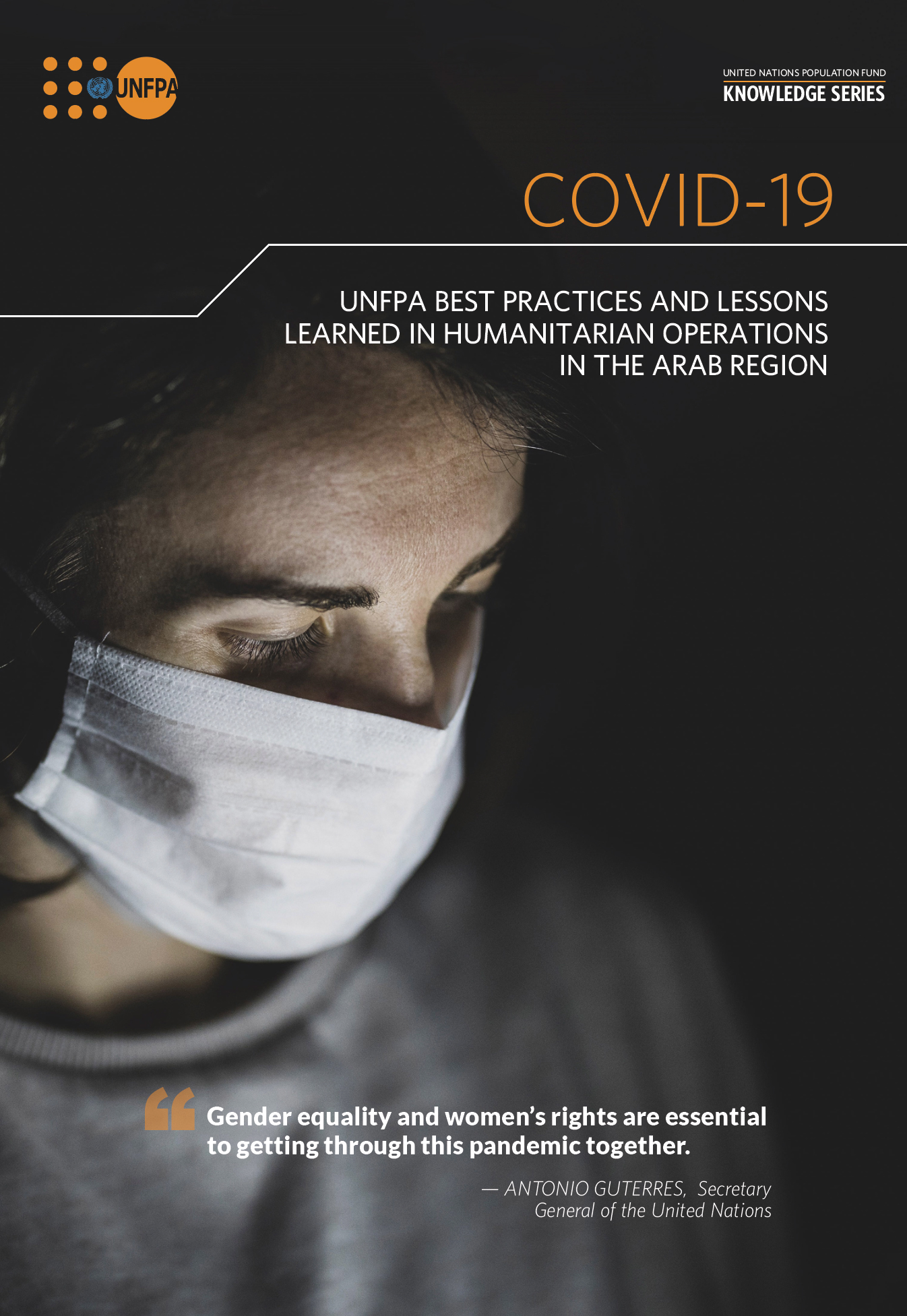
COVID-19: UNFPA Best Practices and Lessons Learned in Humanitarian Operations in Arab Region
The COVID-19 pandemic continues to redefine the realities of nations throughout the world, creating new and unprecedented challenges. The pandemic and its long-term ramifications have revealed many of the structural issues that underlie societies, highlighting systemic inequalities across race, gender, socioeconomic status, and others. In humanitarian contexts, the pandemic has exacerbated the challenges already impacting communities in need, be it through health risks, the economic fallout, or on human rights and social harmony.
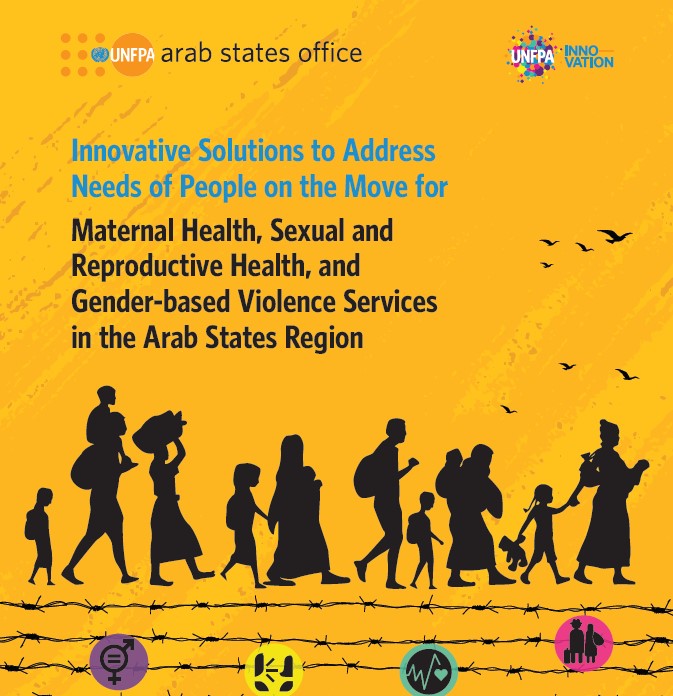
Innovative Solutions to Address Needs of People on the Move for Maternal Health, Sexual and Reproductive Health, and Gender-based Violence Services in the Arab States Region
Mixed migration in the Arab States region is a complex multidimensional phenomenon as the region hosts a combined 34% of the world’s population of the forcibly displaced1 who need access to protection and basic social services including maternal health (MH), sexual and reproductive health (SRH) and gender-based violence (GBV) information and services. Since access to protection and other types of services can be challenging, not the least due to the often precarious legal status of the concerned population groups, the role that innovation can play across the humanitarian sector is noteworthy. Innovation is as a matter of fact, attracting considerable attention, with its potential to open up new ways to meet the various needs of “people on the move”.
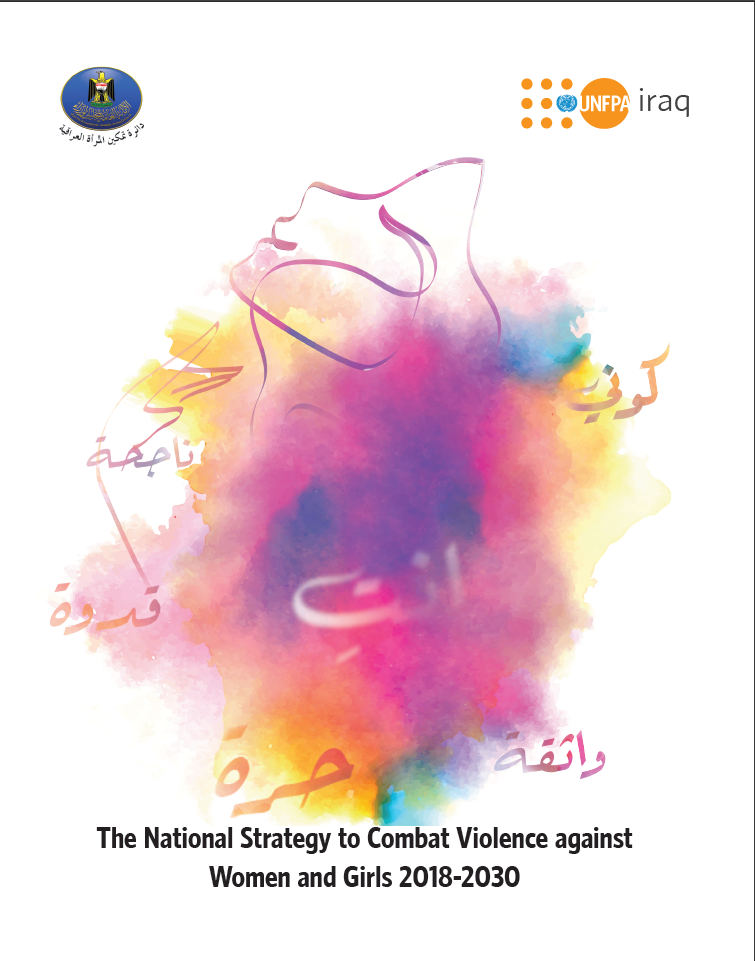
The National Strategy to Combat Violence against Women and Girls 2018-2030
Violence against women is a global phenomenon. It takes various forms from physical, to psychological, and sexual violence and harmful practices that threaten women's health, lives and potential as a human being. Violence Against women is one of the most widespread violation of human rights.
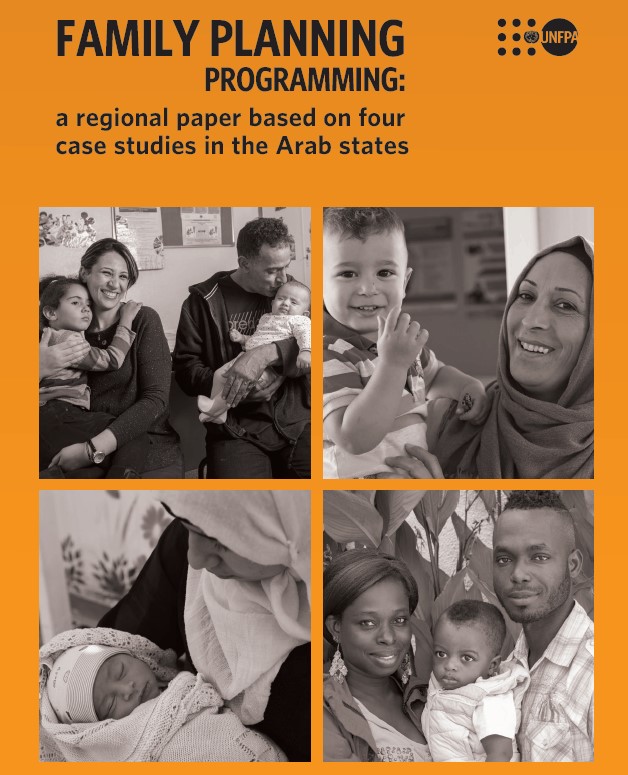
FAMILY PLANNING PROGRAMMING: a regional paper based on four case studies in the Arab states
Family planning is central to gender equality and women and girls’ empowerment, and it is a key factor in reducing poverty. The Programme of Action of the International Conference on Population and Development (ICPD) recognized “the right of men and women to be informed and to have access to safe, effective, affordable and acceptable methods of family planning of their choice.” UNFPA, the United Nations sexual and reproductive health agency, supports voluntary family planning, including procuring contraceptives, supply chain management, and training health professionals to accurately and sensitively counsel individuals about their family planning options. A holistic and sustainable approach to family planning is essential to ensure that family planning needs are met, every individual can choose their preferred method, and most importantly to reduce maternal and child mortality.
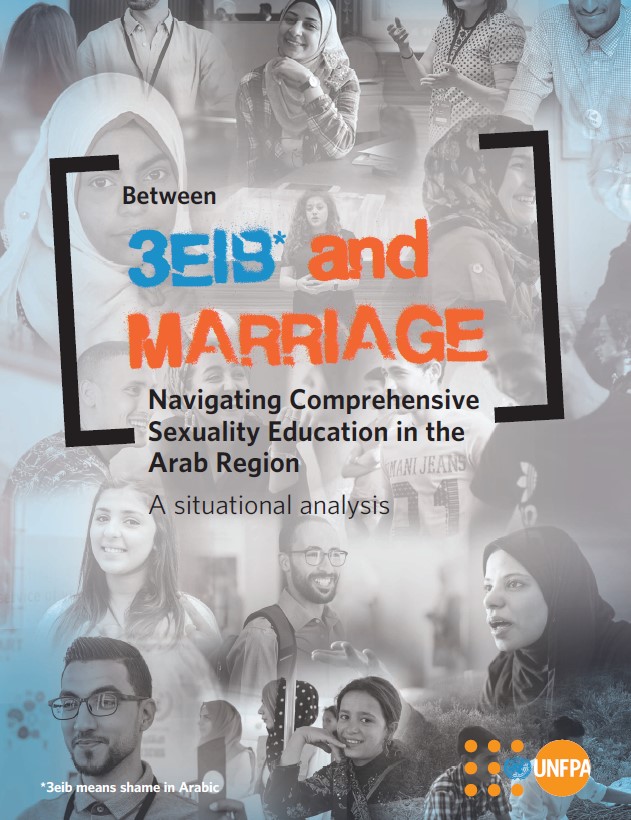
Navigating Comprehensive Sexuality Education in the Arab Region
The objective of this report is to explore the landscape of (comprehensive) sexuality education in the Arab region. In doing so, UNFPA’s Arab States Regional Office (ASRO) aims to identify promising initiatives and any potential best practices for replication or scaling, and seek entry points for CSE in the different Arab states. This does not stand alone, but is interlinked with UNFPA’s strategic plan (2018-2021), and thus the three transformative results, as well as UNFPA’s Youth Strategy.
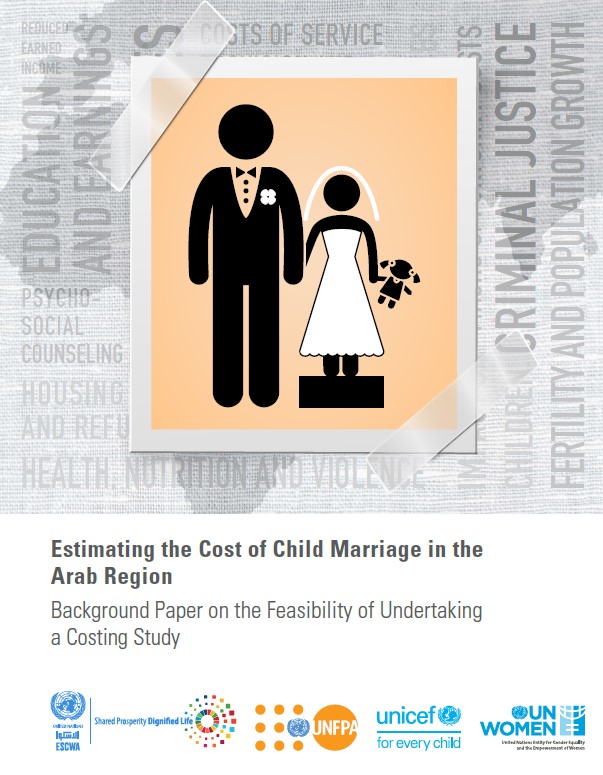
Estimating the Cost of Child Marriage in the Arab Region
Child marriage is a violation of human rights and a form of gender-based violence (GBV) that results in numerous adverse outcomes for a child’s development. In the past 25 years, the Arab region has experienced a decline in child marriage, yet progress has slowed over the past decade. Since 2010-2011, there have been noted increases of child marriage among conflict-affected and displaced populations in the Arab region. The consequences of child marriage are numerous and profound. As well as impeding girls’ educational and economic opportunities, it increases their risk of being subjected to additional forms of GBV and exploitation. Young brides often lack decision-making power in their households regarding important issues such as their health, negotiating safe sex and contraception. Indeed, child marriage has many serious sexual and reproductive health consequences for both young girls and their children, including an increased likelihood of frequent and unplanned pregnancies, increased risk of maternal and infant morbidity and mortality, pregnancy complications, death during childbirth and increased risk of contracting HIV/STIs.

State of World Population 2020
Every day, hundreds of thousands of girls around the world are subjected to practices that harm them physically or psychologically, or both, with the full knowledge and consent of their families, friends and communities.
The practices reduce and limit their capacity to participate fully in society and to reach their full potential. The impact ripples throughout society and reinforces the very gender stereotypes and inequalities that gave rise to the harm in the first place.
Three widespread harmful practices are female genital mutilation, child marriage and son preference.
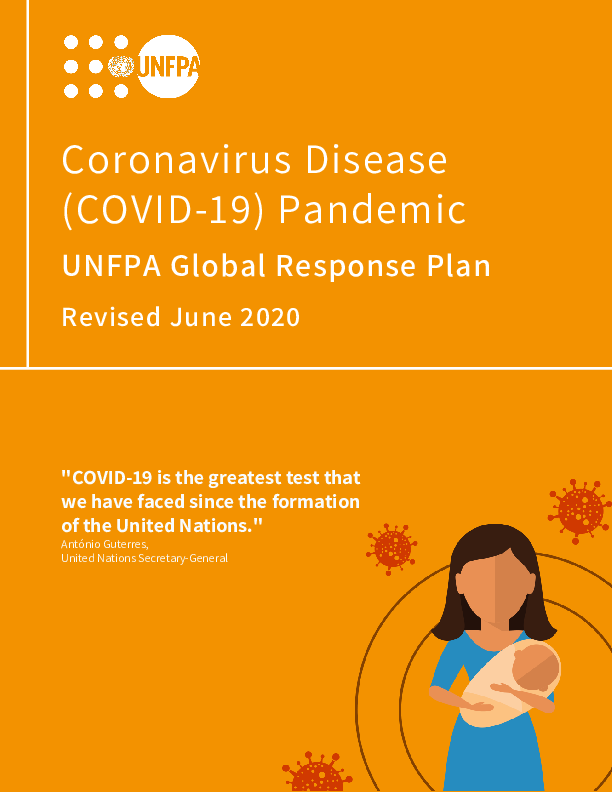
COVID-19 - UNFPA Global Response Plan – Revised June 2020
The COVID-19 pandemic constitutes the largest global public health crisis in a century, with daunting health and socioeconomic challenges. Governments are taking unprecedented measures to limit the spread of the virus, ramping up health systems and restricting the movement of millions. The pandemic is severely disrupting access to life-saving sexual and reproductive health services. It is deepening existing gender inequalities, increasing gender-based violence, and worsening discrimination and barriers for marginalized groups. Sexual and reproductive health and rights is a significant public health issue that demands urgent and sustained attention and investment. UNFPA is providing this June 2020 revision to its Global Response Plan, to reflect upon the changing needs, align with partners, learn from UNFPA action already underway and to further focus UNFPA’s interventions. As the COVID-19 pandemic continues, new UNFPA research has shown the enormous scale of the negative unintended consequences and potential impact.
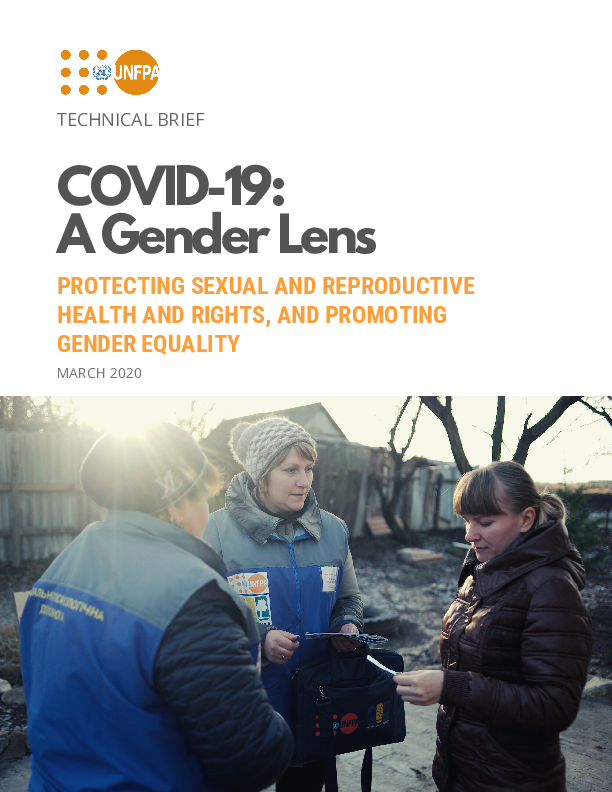
COVID-19: A Gender Lens
Disease outbreaks affect women and men differently, and pandemics make existing inequalities for women and girls and discrimination of other marginalized groups such as persons with disabilities and those in extreme poverty, worse. This needs to be considered, given the different impacts surrounding detection and access to treatment for women and men.
Women represent 70 percent of the health and social sector workforce globally and special attention should be given to how their work environment may expose them to discrimination, as well as thinking about their sexual and reproductive health and psychosocial needs as frontline health workers.
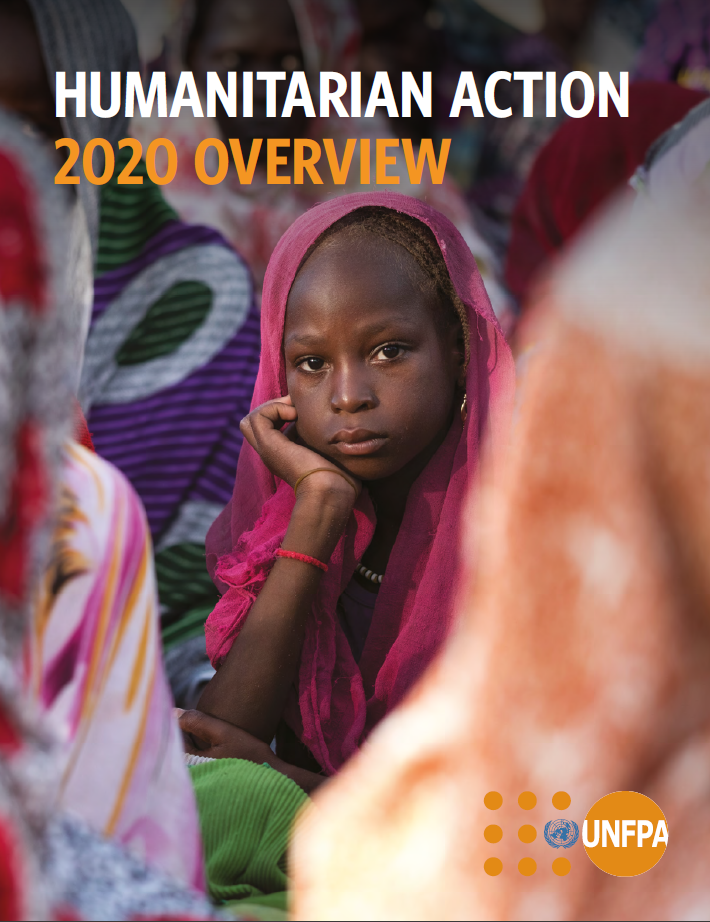
Humanitarian Action 2020 Overview
The UNFPA Humanitarian Action 2020 Overview describes global needs for women, girls and young people who have been affected by humanitarian crises. It also showcases priorities for UNFPA's global humanitarian action and provides a snapshot of the organization's 2019 achievements.